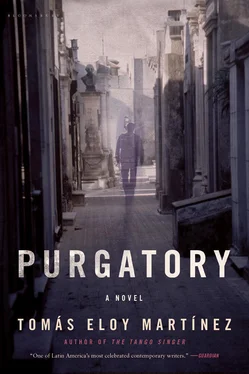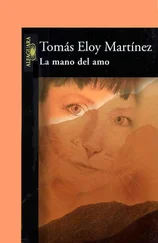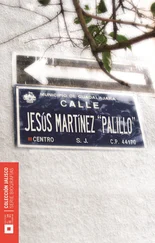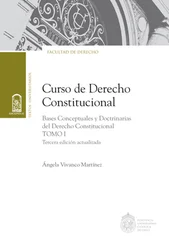‘I’m the one who’s sorry, señor. I don’t know where she came up with language like that. I look after her as best I can. I don’t let anyone see her. I’m not about to admit defeat over some minor setback.’
‘You get more clear-sighted every day, Dupuy. I can tell as much from your editorials. Congratulations. I admire the pieces you’ve written about the Jews who are trying to stay in Patagonia. You brilliantly unmasked them and put an end to their little game. We have to show them that they don’t rule the world.’
The mother sat up in bed. Emilia had the impression that she had heard what was being said. Every word seemed to trigger a memory in her, and each memory triggered another word. A thin wail like the bleating of a lamb came from her mother. Then, with no transition, she began to sing in a tuneless voice: L’shana haba’a b’Yerushalayim .
‘What’s that?’ asked the president, alarmed. ‘Is she speaking Jewish?’
‘No, señor,’ said Dupuy. ‘I think she’s singing “Next Year in Jerusalem”. It’s Hebrew. She must have heard it when she was a little girl: a Jewish family lived next door. Her childhood is about the only thing she does remember now. My daughters and I have to treat her like she’s five years old again.’
Emilia stayed in the house for several months looking after her mother. Even when she slept, she was alert to any changes in her mother’s breathing, to her timid catlike mewling. She would get up in the night several times to take her temperature or take her to the bathroom. Every time, her mother would treat her as though she were someone new, a character from the stories she read in Maribel and Vosotras , or a playmate.
Several times in the night Emilia would get up to take her mother’s temperature or take her to the bathroom and each time, her mother reacted as though she were someone different, some character from a story she had read in Maribel and Vosotros .
‘Oh, how lovely, I haven’t seen you for ages,’ her mother said when Emilia came into the room even if she had only been gone a moment. It clearly kept her entertained since none of the characters ever reappeared.
The following Sunday, the Eel’s wife brought her a gift, a medal of St Dymphna, the patron saint of mental illness. The priest had brought it back from the Vatican together with a collection of colourful prints. The Supreme Pontiff particularly recommended the saint, whose miracles in Belgium and Africa had been well documented. ‘Dymphna can be of great succour to those who have hallucinations,’ the priest had said, choking on the consonants. ‘Very few of the faithful are familiar with her because the illnesses she cured were little known before the advent of psychoanalysis. The Pope himself suggested that a candle be lit every night and ten Hail Marys offered up to St Dymphna so that she might smile on the sick person and bless her from her place in paradise.’
Summer passed, then autumn and still her mother did not come back to reality. Emilia did not move from the bed next to her. She could not bear the television being on constantly, but the doctors were convinced that it helped bring the outside world to her mother, helped stimulate her. Together they put up with seven to ten toxic hours of programming a day: lunches with Mirtha Legrand, the bucolic idyll of Little House on the Prairie , the exploits of Wonder Woman and the Bionic Woman. The evening news regurgitating speeches by the Eel surrounded by his uniformed acolytes. In chorus they explained that Argentina was waging a pitiless war against the enemies of the Christian West and that God would defend the blue-and-white flag of Argentina against the blood-red rag of Communism. After that came a warning, or rather an order: ‘People of Argentina, we shall conquer!’
‘Having to watch television day and night is frying my brain,’ Emilia told the doctors. ‘I’m not sleeping properly. I’m having hallucinations.’ They prescribed a sedative for her. Emilia began to think that all these prayers to St Dymphna could have side effects, the way some medicines did. Every morning, she found it harder to get up, she felt her body opening up like a plant with spiders crossing from branch to branch on greasy strands of web. When her mother slept, memories of Simón would come to her, but Emilia never went beyond the boundaries of her body; as though her body were a house condemned, she would go to the door only to retreat. She tried to capture the memories, jotting them down in the little notebook she always had to hand: ‘Thinking about S, my throat hurts, my chest hurts, my womb hurts. If I saw him dead, I would kill myself.’ It seemed to her that she would never escape this plane in which few things happened and those that did were all the same.
Early one morning, after taking her mother to the bathroom, she saw the toilet was full of blood and there was a trail of drops leading away from it. The cook said that her mother had eaten a salad of beetroot and hard-boiled eggs and that beetroot always turned urine red. But the bleeding continued and Emilia, terrified, asked the family doctor for help. Shortly afterwards an ambulance arrived and took Ethel to a clinic in Belgrano. Dr Dupuy was on an official visit to Los Angeles and his daughter had no idea how to get in touch with him. It was 6 a.m. in Buenos Aires and everyone in Los Angeles would be in bed. Against her better judgement, she asked the Eel for help. He called her father at 6.30 a.m. and Emilia falteringly told him what had happened. ‘And you thought it was worth bothering me for something as trivial as that?’ Dupuy was indignant. ‘I travel ten thousand miles and even here I can’t be left in peace to get on with my work. Your mother has everything she needs, I don’t see there’s any reason to worry.’ He was furious, however, to hear that two strangers had been in the house without anyone keeping an eye on them. ‘What if they were subversives in disguise who intended to plant a bomb under my bed? What if they demanded a ransom for the nurse? I go away for a couple of days and the whole world falls apart.’ This carelessness, this negligence infuriated him. Emilia decided to remain calm while her father fulminated down the phone; she could almost see the veins bulging in his temples.
‘Can you find out what’s happening with Mamá and call me back in half an hour, please?’
‘You think it’s as easy as that to call?’ Dupuy retorted, even more furious. ‘The phone system in the country is a disaster. The language in this country is a disaster.’
Señora Ethel was resting in the clinic, well looked after. Emilia spent hours in the emergency room waiting for a diagnosis. Eventually, a young man, his white coat unbuttoned, came out into the hallway, quickly taking off his surgical mask and his latex gloves. He told her that, for the moment, all he could find was a severe case of haemorrhoids. He asked whether the patient often complained.
‘You may have noticed that my mother is not herself,’ Emilia answered. ‘She never complains about anything.’
‘We’re going to have to do a sigmoidoscopy and a complete blood analysis. It might be nothing more than anaemia. Right now, there’s no need for you to worry.’
‘A sigmoidoscopy. I’ve never heard of that.’
‘We need to make sure she doesn’t have cancer in her sigmoid colon.’
‘I’d like to see her.’
‘Not just yet. We’ll let her rest for a while.’
It made Emilia nervous, the doctor’s habit of speaking in the first-person plural, as though all of humanity were ill or convalescing.
She took a cigarette out of her handbag. An assistant rushing past with an IV drip dodged round her, irritated. She gestured to the large wooden crucifix next to the exit, and the sign above the cross that read: Christ is always watching you .
Читать дальше












